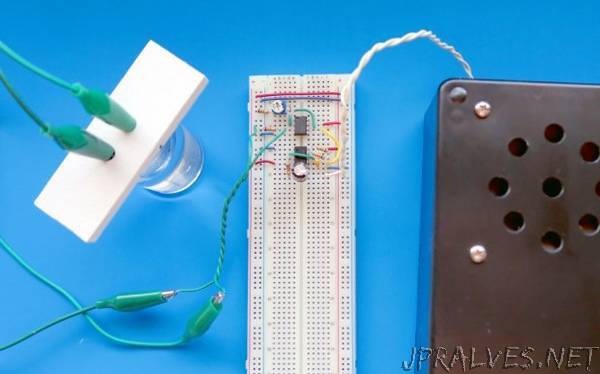
“Can you be electrocuted in the bathtub? Sure — but only because the water’s not pure. Many people don’t realize that absolutely pure water doesn’t conduct electricity. This is because the hydrogen and oxygen atoms don’t have free electrons. In a typical domestic water supply, it’s the impurities such as sodium, calcium, and magnesium salts that enable electrons to flow.
This interesting fact means that you can assess the purity of water by measuring its electrical resistance. The higher the resistance, the purer the water should be (although this test won’t reveal contamination by substances such as organic compounds).
The simple circuit in this project can test water samples without any need for a multimeter.
VOLTAGE DIVIDER
The basic concept is to use a small volume of water in a voltage divider. You can then compare the output from the divider with a reference voltage, and amplify the difference. When the output is passed along to a timer chip, you’ll hear a sound that changes with the purity of the water.”
